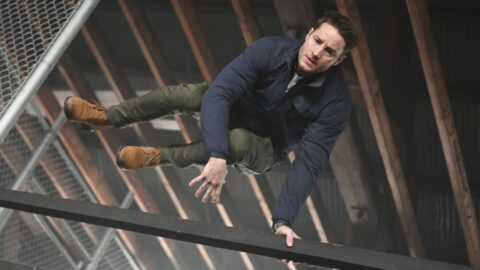
CBS’s Tracker has spent two seasons carving out its niche as a high-stakes drama built around adrenaline, intellect, and heart. But in its latest outing, the series dares to take a different kind of swing — trading relentless action for emotional depth and human complexity. And surprisingly, it works.
Colter Shaw Steps Off the Beaten Path
Justin Hartley’s Colter Shaw has always been a man defined by motion — a tracker constantly on the move, solving other people’s problems while running from his own. In this episode, however, Colter’s search isn’t for a missing person or fugitive. It’s for understanding — of himself, his past, and the people he left behind.
The show slows its pace just enough to let viewers breathe with Colter. It’s a risk for a series built on suspense and momentum, but it’s a welcome change that gives audiences a glimpse at the man beneath the mission.
A Different Kind of Mystery
Instead of a traditional “find the target” case, the episode centers on emotional discovery. Colter revisits an old contact connected to one of his father’s unsolved investigations — a move that forces him to confront the shadow of his family’s fractured history. The mystery unfolds quietly, more through conversations and revelations than chases or fights.
This storytelling shift proves Tracker can excel without explosions or cliffhangers. The tension comes from truth — the kind that hurts to face.
Justin Hartley’s Most Vulnerable Performance Yet
Hartley continues to evolve Colter into one of network TV’s most compelling heroes. In this episode, he drops the armor — literally and figuratively — allowing glimpses of regret, guilt, and longing to surface. His understated performance makes every small gesture feel significant, turning silence into storytelling.
The scenes between Hartley and his co-star — a guest actor playing an old friend tied to his past — crackle with emotional honesty. It’s in these quiet exchanges that Tracker feels the most alive.
A Bold Creative Move Pays Off
Visually, the episode takes cues from indie filmmaking: handheld shots, natural lighting, and muted colors give it a grounded, cinematic texture. The direction feels intimate, as if viewers are shadowing Colter rather than watching from a distance. The result is a richer, more immersive experience that expands what Tracker can be.
The Bigger Picture
This “different kind of search” feels like a turning point for the series. It shows confidence — a willingness to break from formula and trust that audiences will follow Colter not just for the thrill of the chase, but for the truth he’s chasing within himself.
Final Verdict
Tracker’s bold midseason experiment is a success. By stepping away from its procedural roots and focusing on emotion over spectacle, it deepens both its world and its hero.
If the rest of the season builds on this momentum, Tracker could evolve from a clever adventure show into one of TV’s most thoughtful dramas about purpose, identity, and the cost of living on the run.
